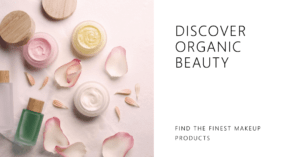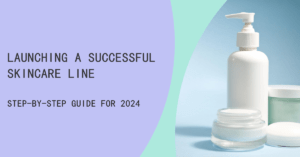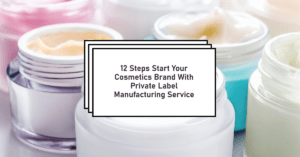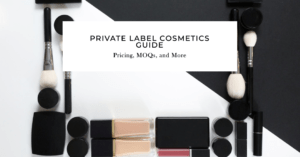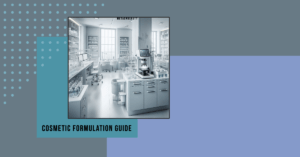Table 1: Outline of the Article
- H1: The Ultimate Guide to Importing Private Label Cosmetics from China
- H2: Why Import Private Label Cosmetics from China?
- H2: Understanding the Chinese Cosmetic Industry
- H3: Market Size and Growth
- H3: Regulations and Standards
- H2: Finding the Right Manufacturer
- H3: Researching Manufacturers
- H3: Evaluating Your Options
- H2: Creating a Strong Private Label Brand
- H3: Choosing a Product Line
- H3: Developing Your Brand Identity
- H2: Quality Control and Product Testing
- H3: In-house Quality Control
- H3: Third-Party Testing and Certification
- H2: Importing Process and Logistics
- H3: Shipping Options
- H3: Customs and Duties
- H2: Protecting Your Intellectual Property
- H2: Marketing Your Private Label Cosmetics
- H2: Scaling Your Business
- H2: Common Challenges and How to Overcome Them
- H2: Success Stories in the Private Label Cosmetic Industry
- H2: Key Takeaways
- H2: Conclusion
- H2: Frequently Asked Questions
Table 2: Article
The Ultimate Guide to Importing Private Label Cosmetics from China
Why Import Private Label Cosmetics from China?
Private label cosmetics offer numerous advantages for businesses, including lower production costs, greater control over product quality, and the ability to create a unique brand identity. China, as the world’s manufacturing hub, provides unparalleled opportunities for sourcing high-quality private label cosmetics at competitive prices. This guide will walk you through the process of importing private label cosmetics from China, ensuring a smooth and successful experience.
Understanding the Chinese Cosmetic Industry
Market Size and Growth
The Chinese cosmetic industry is rapidly growing, thanks to a rising middle class and increasing demand for beauty and personal care products. In recent years, China has become the second-largest cosmetic market globally, with an expected annual growth rate of over 10%.
Regulations and Standards
China’s cosmetic regulations are evolving to align with international standards, ensuring the safety and efficacy of products entering the market. Familiarizing yourself with these regulations, such as the China Food and Drug Administration (CFDA) guidelines, is crucial for successfully importing private label cosmetics.
Finding the Right Manufacturer
Researching Manufacturers
Start by conducting thorough research to identify potential cosmetic manufacturers in China. You can use resources like Metacnbeauty, trade shows, and industry-specific forums to find manufacturers with experience producing private label cosmetics.
Evaluating Your Options
Once you have a list of potential manufacturers, evaluate them based on factors like product quality, lead time, minimum order quantity (MOQ), and communication. Request samples and visit factories in person if possible to make a well-informed decision.
Creating a Strong Private Label Brand
Choosing a Product Line
Focus on a specific product line that aligns with your target market and brand identity. Determine whether you want to offer makeup, skincare, haircare, or other beauty products, and consider niche markets like organic or cruelty-free cosmetics.
Developing Your Brand Identity
Develop a cohesive brand identity that will resonate with your target audience, including your brand name, logo, packaging, and overall aesthetic. This will help distinguish your private label cosmetics from competitors and create a strong impression on customers.
Quality Control and Product Testing
In-house Quality Control
Ensure that your chosen manufacturer has robust quality control processes in place, including regular inspections, batch testing, and adherence to industry standards. Establish clear quality expectations and communicate them to your manufacturer to prevent issues down the line.
Third-Party Testing and Certification
Consider working with a third-party testing and certification company to verify the safety and quality of your private label cosmetics. This can help you comply with regulations, reassure customers, and avoid costly product recalls.
Importing Process and Logistics
Shipping Options
When importing cosmetics from China, you can choose between air freight, sea freight, or express courier services. Each option has its pros and cons, with factors like cost, transit time, and shipment size playing a role in your decision.
Customs and Duties
Familiarize yourself with the customs and duty requirements in your target market to ensure a smooth importing process. This includes obtaining necessary permits, paying import taxes, and adhering to labeling and packaging regulations.
Protecting Your Intellectual Property
Protect your brand and designs by registering trademarks and patents in both China and your target market. This can help prevent counterfeiting and unauthorized use of your intellectual property.
Marketing Your Private Label Cosmetics
Develop a comprehensive marketing strategy to promote your private label cosmetics, leveraging channels like social media, influencer marketing, and content marketing. Ensure your branding and messaging are consistent across all platforms to create a strong brand presence.
Scaling Your Business
Once your private label cosmetic business is established, consider expanding your product line, entering new markets, or partnering with retailers and distributors to grow your brand. Continuously analyze your sales and customer feedback to make data-driven decisions and stay competitive.
Common Challenges and How to Overcome Them
Some challenges you may face when importing private label cosmetics from China include language barriers, cultural differences, and time zone discrepancies. Address these challenges by working with a local agent or translator, setting clear expectations, and fostering open communication with your manufacturer.
Success Stories in the Private Label Cosmetic Industry
Many private label cosmetic brands have found success by leveraging the benefits of importing from China, such as lower production costs and access to cutting-edge technology. These success stories can serve as inspiration and motivation for your own private label journey.
Key Takeaways
Importing private label cosmetics from China offers numerous advantages, but it also requires careful planning, research, and execution. By following the steps outlined in this guide, you can successfully navigate the process and establish a thriving private label cosmetic business.
Conclusion
This ultimate guide has provided you with valuable insights into importing private label cosmetics from China, from understanding the Chinese cosmetic industry to marketing your products. By following these steps and overcoming common challenges, you can tap into the immense potential of the Chinese market and create a successful private label cosmetic brand.
Frequently Asked Questions
- What are the benefits of importing private label cosmetics from China? Importing private label cosmetics from China offers lower production costs, access to advanced manufacturing technology, and the ability to create a unique brand identity.
- How do I find a reliable cosmetic manufacturer in China? Conduct thorough research using resources like Metacnbeauty, trade shows, and industry forums, and evaluate potential manufacturers based on factors like product quality, lead time, and communication.
- What should I consider when developing my private label brand? Focus on creating a cohesive brand identity, choosing a specific product line, and targeting a niche market that aligns with your brand.
- What shipping options are available when importing cosmetics from China? Shipping options include air freight, sea freight, and express courier services, with factors like cost, transit time, and shipment size influencing your decision.
- How can I protect my intellectual property when importing private label cosmetics? Register trademarks and patents in both China and your target market to protect your brand and designs from counterfeiting and unauthorized use.

